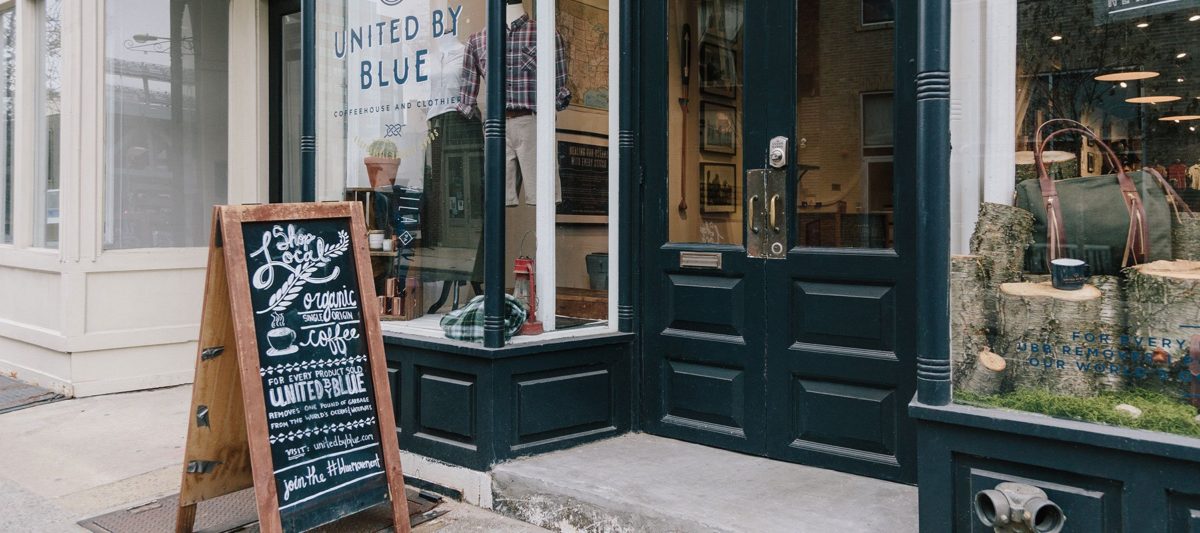Philadelphia is home to almost two dozen B Corps. When an increasing number of companies prioritize sustainability and balancing profit and purpose, why aren’t there more?
B Corps are a subset of for-profits that have made strict commitments to social causes. They voluntarily adopt rigorous standards of social and environmental performance, accountability and transparency. Their goal goes beyond profit, aiming, too, to treat their workers and the planet well.
Companies become B Corps when certified by B Lab, a Berwyn-based nonprofit, following an intensive, months-long process. If your company is approved — and only one in three are, per B Lab’s site — annual certification fees cost $1,000 to $2,000 for companies with annual sales under $5 million, and more for bigger corporations.
For some founders with an interest in community and the environment, showing off their commitment to the social good is worth it. But the costs don’t always balance out.
Software firm MilkCrate works with the public good in mind, such as with its forthcoming Glitter, an app that will pay Philadelphians for keeping their blocks clean. The company was certified as a B Corp for a time, and actively promoted itself as such.
However, CEO and founder Morgan Berman told Technical.ly, the time and money involved in keeping B Corp status ultimately played a factor in MilkCrate dropping the certification.
“I just couldn’t keep updating the docs and proof they needed that we were ‘good,’ especially since my office was a sublease and we don’t buy ‘stuff’ to do our work, so we don’t spend a lot of money to get points for buying ‘good things’ or ‘clean energy’ since we didn’t consume much of anything,” she said.
Plus, the process is long and complex, and it doesn’t necessarily result in more business. That’s according to John Williams, the president of Wilmington-based digital incorporation services company Inc. Now, which became Delaware’s first B Corp in 2019. Inc. Now has maintained its certification, but he acknowledged that companies certify to show commitment, not necessarily to increase profits.
All companies have values, but 2020 brought them to the center of what a company does. Will such trends continue?
“There was an initial application with 150 questions, documents, interviews. It’s a complicated seven-month process,” he said. “Then you have to re-certify every three years.”
But according to Maria McDonald, sustainability manager for Old City-based clothing company and B Corp United By Blue, potential B corps must assess their environmental and social performance, the basis of their business model, their employment policies and their community presence when applying for certification — and the learnings from that practice alone can be worth the effort.
“By going through the rigorous B Corp process, you have to come out with a better understanding of the full spectrum of risks and opportunities available to you as a company, which affects your longevity,” she said. “If you’re only considering financial returns as your proxy for success, then you have an incomplete look at your business.”
Building a long-lasting B Corp that prioritizes sustainability begins with understanding the purpose of a business and seeing the profit from it as a way to make execute that purpose, McDonald said. B Corps might even view the environment and natural resources as active stakeholders in their business, as that business cannot have a long lifespan if the world in which it exists does not have livable climate.
While the process to become certified as a B Corp can be timely and expensive, McDonald believes companies of the future will benefit from the certification and could stand to lose out on business, employees and investment without it.
“During the COVID-19 pandemic, consumers put more money towards purpose-driven brands than they did towards traditional brands,” she said. “In the public company world, companies with higher ESG (environmental, social, governance) scores financially outperformed their less sustainable peers during the pandemic. These are trends that support the notion that being a B Corp drives revenue.”
As we noted earlier this year: All companies have values, but 2020 brought them to the center of what a company does. As we approach a post-pandemic world, we’ll watch to see if such trends continue.
Michael Butler is a 2020-2022 corps member for Report for America, an initiative of The Groundtruth Project that pairs young journalists with local newsrooms. This position is supported by the Lenfest Institute for Journalism.
This editorial article is a part of Tech and the Environment Month of Technical.ly's editorial calendar.
Before you go...
Please consider supporting Technical.ly to keep our independent journalism strong. Unlike most business-focused media outlets, we don’t have a paywall. Instead, we count on your personal and organizational support.
3 ways to support our work:- Contribute to the Journalism Fund. Charitable giving ensures our information remains free and accessible for residents to discover workforce programs and entrepreneurship pathways. This includes philanthropic grants and individual tax-deductible donations from readers like you.
- Use our Preferred Partners. Our directory of vetted providers offers high-quality recommendations for services our readers need, and each referral supports our journalism.
- Use our services. If you need entrepreneurs and tech leaders to buy your services, are seeking technologists to hire or want more professionals to know about your ecosystem, Technical.ly has the biggest and most engaged audience in the mid-Atlantic. We help companies tell their stories and answer big questions to meet and serve our community.
Join our growing Slack community
Join 5,000 tech professionals and entrepreneurs in our community Slack today!

The person charged in the UnitedHealthcare CEO shooting had a ton of tech connections

From rejection to innovation: How I built a tool to beat AI hiring algorithms at their own game

Where are the country’s most vibrant tech and startup communities?



